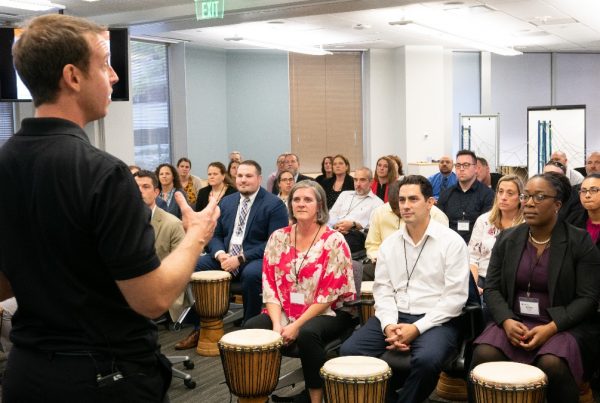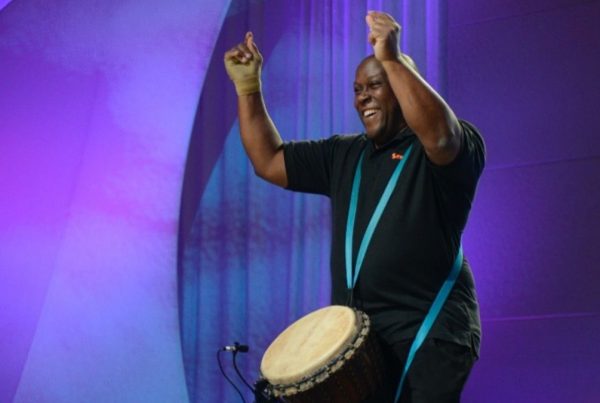The tension in the room was thick. Everyone’s body language was stiff, and their faces were tight and serious. Compare that with the tone of the room just a few minutes later. Everyone was relaxed with shoulders un-hunched, and smiles and energy had returned to their faces. That’s the impact of motivation vs inspiration. And just what was going on in that room anyway?
The group of executives in front of me were participants in a corporate drumming workshop I was leading, and we were exploring the results-oriented impact of motivation vs inspiration. Having just learned a brand-new piece of music a few moments ago, I first instructed them to play with the motivation of avoiding mistakes at all costs. That’s the motivation that drove the tension, and when the music started, it sounded lurching and forced.
Next, I instructed the group to play with a focus on learning through the metaphor of music. I invited them to use any mistakes as an opportunity to gain insights about their organization that would ultimately lead to their growth and success. That created the energy of inspiration, and when the music started, it sounded alive and engaging.
The Merriam-Webster dictionary defines motivation as “a motivating force, stimulus or influence.” The example sentence they give is, “The fear of failure was the motivation for his achievements.” The Oxford English Dictionary defines inspiration as “the process of being mentally stimulated to do or feel something, especially to do something creative.” The example sentence they give is, “The Malvern Hills have provided inspiration for many artists.”
Notice in the example sentences that motivation is framed in terms of fear and self-interest, while inspiration is associated with service, contribution and creativity. While motivation may have been suitable for the industrial era where economic success was largely driven by manual productivity, inspiration is much better suited for the information age where creativity and connectivity tend to drive success.
A question that we ask participants during our leadership development programs and team building icebreakers for meetings is whether they would rather work in an organization motivated by fear and self-interest, or an organization inspired by creativity and connection. We ask them which company do they think will be more innovative, more adaptive and more successful.
So, as a leader, are you contributing to a culture of motivation or inspiration? (And we are all leaders in the sense that we are always setting an example.) Are you driving fear and self-interest, or are you engendering creativity and connection? Are you motivating yourself and others, or inspiring yourself and others?
Please contact us to talk about how to use corporate drumming workshops to build a culture of inspiration.





